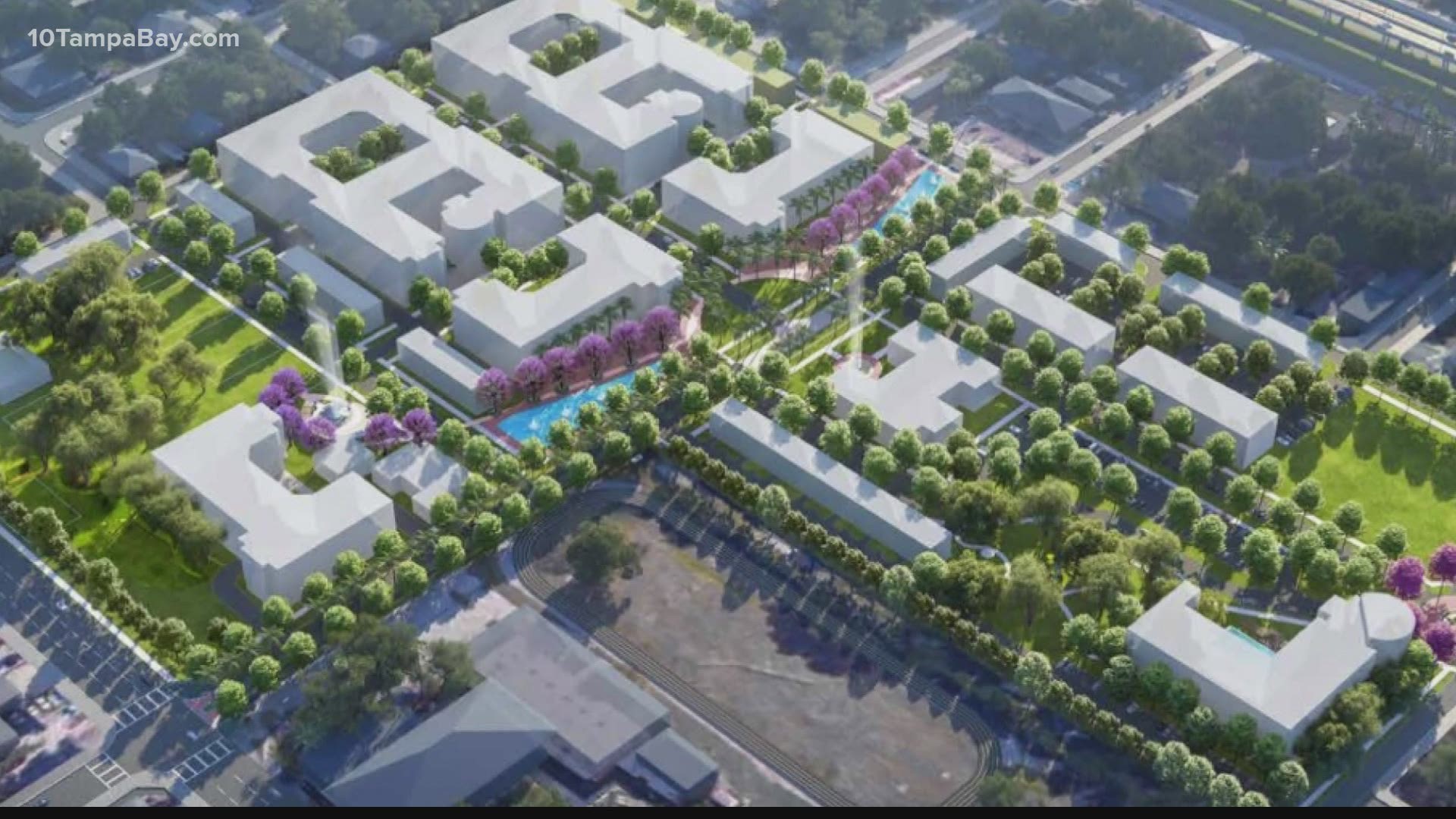TAMPA, Fla — The Tampa Housing Authority unveiled its multi-million dollar master plan for redeveloping Robles Park Village, a low-income public housing development located in a rapidly gentrifying Tampa Heights that is also the site of a destroyed African American cemetery at the center of public debate.
“I think we can all agree that Robles Park has outlived its usefulness,” said Mayor Jane Castor, who patrolled the area for many years when she worked with the Tampa Police Department.
“It is time for it to be replaced.”
The master plan calls for a mixed-income community and will increase the housing density in the area from 433 units to 1,012. According to the plan, the goal is to include “multi-family housing, senior housing, market-rate housing and townhomes in a mixed-income development.”
About 80 percent of the units will be dedicated to addressing affordable housing in the community.
“I think we’ve got a real opportunity of making things happen here,” THA CEO Jerome Ryans said.
Ryans has been at the helm for most of THA’s more recent redevelopment efforts, including the West River project which encompasses the location of the old North Boulevard Homes, which is still under construction.
He said Robles Park Village is the last of the old, barrack-style public housing developments in the city. The aging units are dilapidated, lack air conditioning and amenities, and the community overall has struggled with drugs, crime and poverty over the years.
Still, some residents who call Robles Park Village home have mixed feelings about redevelopment and are concerned it could further spur gentrification that will permanently push them out of the neighborhood.
“This is my home. I would like to come back to my home,” said Reva Iman, president of the Robles Park resident council.
Leroy Moore, chief operating officer for THA said the relocation process for residents will begin in the next year. In previous relocations, THA has moved residents to other THA developments or allowed them to move into private housing through what’s commonly known as a Section 8 voucher.
However, THA must still secure funding for the development. The federal department of Housing and Urban Development no longer 100-percent finances local housing authority redevelopment plans, forcing local agencies to partner with private developers to complete projects.
Further complicating the funding issue is the discovery of graves from a destroyed, segregation-era African American cemetery on the property. Moore and Ryans have both prioritized building a memorial and a possible museum at the site, but the price tag hovers around $8 million. The cemetery is also split across two other parcels of private land, and there have been no deals among the owners to sell the land.
Ryans says the entire redevelopment process will take three to five years to complete. Residents like Iman hope they are not forgotten in the meantime.
“If you ride down Florida Avenue, Nebraska, you see all the new restaurants, housing being built,” she said. Things are changing, but remember, we are here. And we want to stay here.”
- Miami-Dade mayor: 11 confirmed dead after collapse of Surfside condo, 150 missing
- Miami Herald: Contractor noticed damage underneath pool deck at Surfside condo just before collapse
- In collapsed building's twin, most people are staying put
- Tampa Bay Lightning could join elite list of NHL teams to win back-to-back Stanley Cup championships
- A Frank Conversation: New podcast explores race, religion, politics and more
►Breaking news and weather alerts: Get the free 10 Tampa Bay app
►Stay In the Know! Sign up now for the Brightside Blend Newsletter

